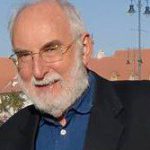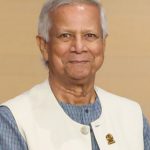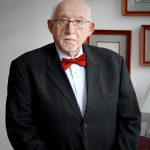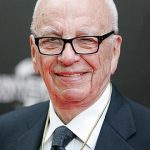Denis Kiley’s “full and outrageous life” was celebrated on July 13 2018 after his death from advanced prostate cancer on June 29.
Exiled nearly 60 years before from apartheid South Africa for reporting on deaths and abuse at the Modder B prison near Johannesburg, Kiley ended up in England by way of Kenya and the Congo, continuing to write and publish reports on Africa for many years.
From friend and colleague Raymond Whitaker:
Announcing his father’s death on 29 June 2018, the journalist Sam Kiley said Dennis had enjoyed a “full and outrageous life”.
Indeed – just how outrageous is clear from Dennis’s privately published autobiography, The Guns of the White Father, which relates with relish his numerous careers, loves and adventures, extracting the blackest of humour from the direst of circumstances.
Born near Cape Town in 1933, Dennis soon showed the independence of spirit that later rendered him immune from the collective madness, called apartheid, that infected his fellow South African whites.
Though an English speaker, he insisted on being educated in Afrikaans. This stood him in good stead as he evaded the political and moral restrictions of Afrikaner nationalism, which he described as “looming over the land, grim, joyless, interfering, righteous, the great Calvinist monster”.
A picaresque progress around South Africa, including stints as a travelling salesman and gold miner, as well as a couple of marriages, eventually took Dennis into journalism. Working for the Golden City Post, a paper aimed at all the “non-white” communities – black, Asian and mixed-race “Coloured” – enabled him to move between worlds in a country that was becoming increasingly segregated.
“A tabloid weekly paper is a lively place,” Dennis wrote. “We covered mass murderers, sexual deviants, blackmailers, kidnappers and sometimes a combination.”
Despite growing government oppression, he mixed with (and chose his lovers from) fellow free-thinkers of all races, from jazz musicians and gangsters to those fighting apartheid, openly or clandestinely. He met Chief Albert Luthuli, one of the founders of the ANC, which now rules South Africa. The chief was under house arrest in rural Zululand, so Dennis visited him every week to take down his thoughts for a weekly column.
Later he recalled: “We wrote: ‘We do not want to drive you back into the sea where you came from, and we do not want to marry your sisters. All we ask for ourselves is a fair share in the land of our birth.’ That was in the citation when he won the Nobel Peace Prize.”
Dennis was doing an increasing amount of work for foreign newspapers and broadcasters in Britain, Canada and the US. This got him into trouble when he reported for a London newspaper on the mistreatment of black prisoners in the notorious Modder B jail.
The white government had imposed a near-total ban on coverage of such matters, and he was the first person convicted under the newly-passed Prisons Act. The result was to make it virtually impossible to operate as a journalist in South Africa, and he took up the invitation to become the understudy to his best friend, television journalist George Clay, in Nairobi.
“I had never enjoyed being anywhere as much as I enjoyed living in Kenya,” Dennis wrote later. It was a country that “lifted me up and stared into my face”. It was where he met and married Martha Worthington, an expert in animal behaviour, and where Sam was born.
It was also from Nairobi that he embarked on the most dangerous and exciting episode of his life – covering the bloodshed in Congo, which became independent in 1960 and was almost immediately plunged into civil war, with the United Nations sending in troops to prevent the mineral-rich province of Katanga seceding.
The war, which attracted riff-raff from every continent to fight as mercenaries, more than satisfied Dennis’s taste for the eccentric and the bizarre, furnishing him with a lifetime of anecdotes. There was, for example, the English head doctor at a rural hospital who turned out to have no medical qualifications at all, while the title for his book came from a priest of the White Fathers order, who shot crocodiles to earn money for his mission.
At times it seemed that Dennis was reporting on the Congo disaster for most of the English-speaking world, constantly risking his life but earning more than enough to repay his friend George, who had helped to set him up with a loan, a Land Rover and TV equipment. Martha, as fearless as he was, joined him in Katanga.
But their appetite for adventure was abruptly stilled when George was killed by a stray bullet in the conflict. Dennis even gave up journalism for a time, preferring to sell cars in Nairobi. When journalism eventually reclaimed him, it was in a different country and a different style.
Arriving in Britain with his family (though his marriage to Martha did not last), Dennis the hell-for-leather reporter became Dennis the journalistic entrepreneur.
At the Financial Times he headed the syndication department, selling the newspaper’s copy to governments, businesses and other news outlets around the world, an enterprise in which I served for some years as his deputy. Later he ran an expanding and profitable newsletters empire under the FT name, hiring many people who went on to prominence in the profession.
Dennis spent his final decades with Yuriko Akishima, a cultural correspondent whom he claimed to have persuaded in the nick of time not to return to Japan, but to marry him instead, in the process adding two more to his collection of sons.
This, and his move into management, might have made it appear that his maverick spirit had been tamed, but not so. When it emerged that an employee had been embezzling funds, for example, the FT management’s instinct was to hush the matter up. Dennis insisted on going to the police, however, and had the satisfaction of seeing the culprit jailed for two years.
Post-retirement, Dennis somehow succeeded in securing an allotment in the middle of Hampstead, surrounded by some of the most expensive property on earth. Nearby was his favourite pub, the Holly Bush, where family, friends and former colleagues gathered in their brightest clothing on 13 July to remember him.
It was the best way to celebrate probably the most convivial man we are ever likely to meet.







